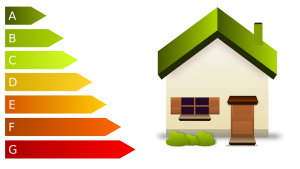Too Many Requests from Your Network
Please complete verification to access this content.
Determining Your Property’s Value in Thailand
Determining the value of your property in Thailand is a multifaceted journey beyond mere calculations. It involves a delicate dance between practical considerations and emotional appeal, considering various factors contributing to your property’s worth. Let’s dive into the key aspects that shape the value of properties in Thailand, offering insights to empower you in understanding your property’s potential worth.
Location, Location, Location: A Pivotal Factor
The critical factor influencing property value is its location. In Thailand, diverse regions and neighbourhoods exhibit significant variations in desirability and demand. Urban centres like Bangkok may command higher prices due to the convenience of amenities and job opportunities. Conversely, serene coastal areas or scenic mountain retreats cater to a different market, each with unique dynamics.
Proximity to essential services and infrastructure plays a crucial role. Properties near schools, hospitals, public transportation, and shopping centres often boast higher values. Furthermore, developments in transportation infrastructure, such as new highways, can positively impact property values by enhancing accessibility.
Emotional Appeal: Elevating the Experience
 Beyond the practical aspects, there’s an emotional side to your property’s value. Consider what makes your place special and unique. Whether it’s a breathtaking view of the sunset or being part of a vibrant cultural community, these personal experiences can elevate the perceived value of your property.
Beyond the practical aspects, there’s an emotional side to your property’s value. Consider what makes your place special and unique. Whether it’s a breathtaking view of the sunset or being part of a vibrant cultural community, these personal experiences can elevate the perceived value of your property.
When showcasing your property, share these anecdotes. Highlight the cosy evenings by the fireplace or the joy of hosting gatherings in your spacious backyard. Potential buyers are not just looking for a house; they seek a home that resonates with their aspirations and lifestyle.
Economic Vibes and Market Trends: Riding the Wave
The real estate market dances to the rhythm of economic conditions and trends. Economic growth, interest, and employment rates can sway property values. In Thailand, understanding the country’s financial situation and aligning it with global trends provides insights into the direction of property values.
Local market trends are equally pivotal. Monitoring property sales data in your area helps identify patterns, enabling you to gauge whether the market favours buyers or sellers, setting the stage for your property’s worth.
Size, Condition, and Future Prospects: Crafting Value
The size and condition of your property are fundamental aspects influencing its value. More significant properties generally command higher values but extend beyond square footage. The layout, the number of bedrooms and bathrooms, and how everything flows contribute to the property’s appeal.
Consider prospects as well. Are there upcoming developments or neighbourhood projects that could positively impact your property’s value? Adding a nearby park, community centre, or improvements in local infrastructure can significantly influence desirability.
Legal Considerations and Green Initiatives: Navigating the Landscape
Understanding the legal aspects of property ownership in Thailand is crucial. Foreigners may encounter restrictions on property ownership, making awareness of the legal framework essential. Additionally, properties with clear and unambiguous title deeds (Chanote) are generally more attractive to buyers, potentially increasing their value.
In an era where environmental consciousness is on the rise, your property’s energy efficiency and eco-friendliness can be a strong selling point. Showcase any eco-friendly features, such as solar panels, energy-efficient appliances, or a well-maintained garden, as buyers increasingly appreciate properties aligned with sustainable living practices.
Comparative Analysis and Adapting to Trends: Staying Relevant
One effective method for estimating the value of your property is conducting a comparative market analysis (CMA). Evaluate similar properties in your area that have recently sold or are currently on the market. By comparing these properties’ features, sizes, and conditions to yours, you can get a more accurate idea of your property’s value.
Given the global shift towards remote work, properties with dedicated home office spaces have gained popularity. If your property offers a well-designed workspace, emphasize its functionality and comfort. Additionally, integrating smart home technology, such as security systems or energy-efficient thermostats, can boost your property’s appeal in a tech-savvy market.
Engaging Professionals and Aesthetic Enhancements: Expertise and Presentation
Although you can acquire much information independently, consulting with real estate professionals can offer valuable insights. Real estate agents and property appraisers possess extensive knowledge of the local market, enabling them to assess your property’s value accurately. They can also consider nuances that might be missed by someone not intimately familiar with the intricacies of the real estate landscape.
First impressions matter. Enhancing your property’s curb appeal, from a well-maintained garden to an inviting front entrance, can significantly impact its perceived value. Similarly, thoughtfully designed interiors with a cohesive colour scheme and modern finishes can make a lasting impression on potential buyers.
Conclusion: A Holistic Understanding
Determining the value of your property in Thailand involves considering a myriad of factors, from location and market trends to property size, condition, and prospects. By staying informed about economic conditions, understanding local market trends, and seeking professional advice, you gain a comprehensive understanding of how much your property is worth. Whether you are contemplating selling, refinancing, or simply curious about the value of your investment, a thorough assessment will empower you to make informed decisions in Thailand’s dynamic real estate landscape.




